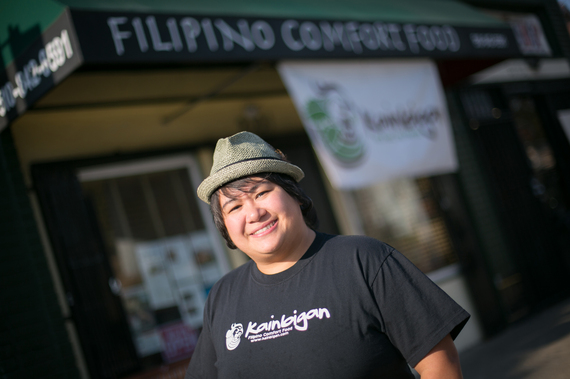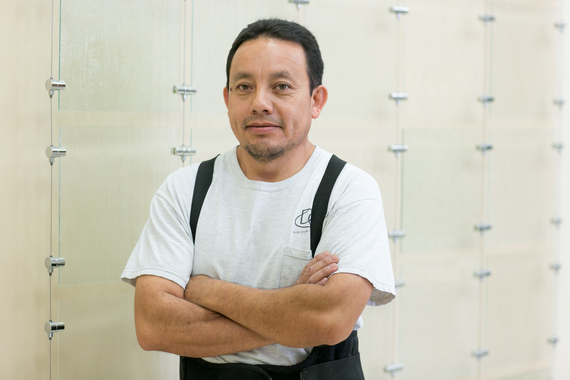In the six years since the end of the recession, our economy created 12 million jobs and unemployment dropped below 5%. Each month, the Bureau of Labor Statistics survey continues to show hundreds of thousands of new jobs added to the economy. Great news? Not for all of us.
While our economy has improved on paper, the average American worker is experiencing a different reality. During the last few years, the fastest-growing jobs have been at places like strip malls and fast-food restaurants -- low-wage work with few benefits and unpredictable schedules. Averaged across all occupations, real wages have not only remained stagnant but have dropped, building on a decades-long trend where workers and their families increasingly cannot afford the basic goods and services they need to get by. It's an economy that's leaving far too many people behind, and frankly, as a nation, we're better than this. It's frustrating - but there are ways we can reverse these trends.
Since 1998, Pacific Community Ventures has been at the forefront of using business as a force for good. We began our life as a double-bottom-line equity fund for "Mom and Pop" businesses in the Bay Area. From there, we grew into a social enterprise offering free expert business advising to small businesses anywhere in America, and loans to small businesses that are shut out of the traditional financial system. Along the way, we launched a first-of-its-kind impact advisory practice that serves investors and policymakers who want to drive capital to do social good.
Over the last 18 years, we've helped entrepreneurs create thousands of jobs for working people in underserved areas. But in order to continue to build wealth in these communities, and reverse the troubling trends we're seeing in our economy, we no longer find it defensible to focus on job creation alone. It's clear that job creation does not equate to lasting economic change. And so, we must shift our focus to the creation of higher quality jobs -- jobs that are good for workers and their families, good for businesses, and good for communities -- enabling us to build an economy that works for everyone.
We need to create more jobs for people like Lupe Garcia. Lupe had been unemployed for two years when he was hired by our advised small business Discount Glass & Mirror in San Diego as an installer. With a commitment by owner Anthony Bortz to on-the-job training and plenty of opportunities for career advancement, Lupe is now the Project Manager at DGM, a job that allows him to support his family of five.
This is one example of quality job creation in practice, and it needs to be replicated on a much larger scale. In order to make quality job creation the norm, we're bringing together an ecosystem that collectively has the power to drive change. We're focusing on small businesses, investors, and policymakers, as well as government agencies, community groups, and advocacy organizations. Together, we will increase awareness, understanding, and creation of quality jobs and develop ways to measure, report, and share what's working across the entire social sector.
The first step to move the economy to one where quality jobs are the norm is to build consensus around a common definition of a quality job. We're heading down this new path with a first-of-its-kind report that seeks to answer an important question: What - exactly -- is a quality job.
- A living wage
- Basic benefits
- Career-building opportunities
- Wealth-building opportunities, and
- A fair and engaging workplace
Our work and research also offers methods for Community Development Financial Institutions (CDFIs) like us and other impact investors to understand the extent to which they are supporting quality job creation through impact measurement and reporting.
Of course, no organization can meaningfully create this kind of change on its own. PCV takes great pride in our partnerships, and in the coming years we're aiming to work hand-in-hand with CDFIs, impact funds, social entrepreneurs, foundations, policymakers, and small and large businesses across America.
There's no one cause behind rising inequality and the expanding number of working poor. Stagnant wages, rising housing costs, expensive and segregated education, policies that favor globalized corporations over local economies, neglected transportation infrastructure -- it all adds up. At PCV we're investing in a new quality jobs economy as a way to help turn the tide. We hope that you will join us in this journey.
Mary Jo Cook is President and CEO of Pacific Community Ventures, a nonprofit social enterprise that engages small businesses, investors, and policymakers to build an economy that works for everyone. You can follow them on Twitter @PCVTweets



